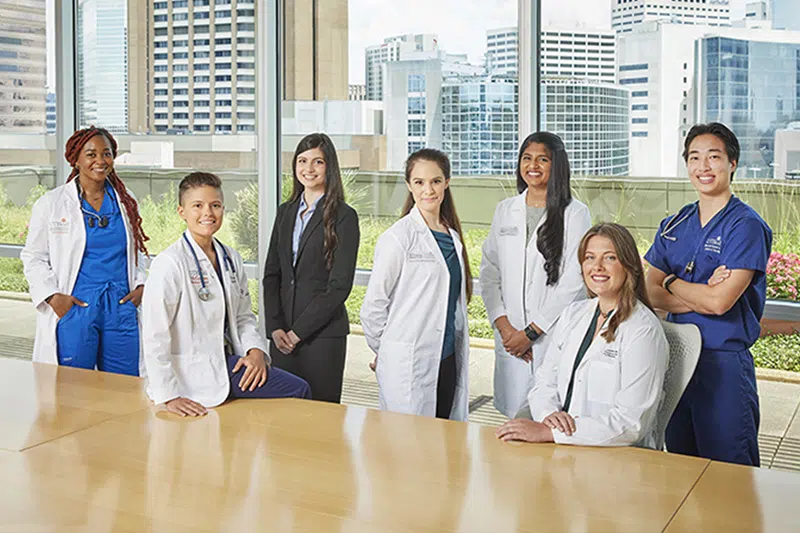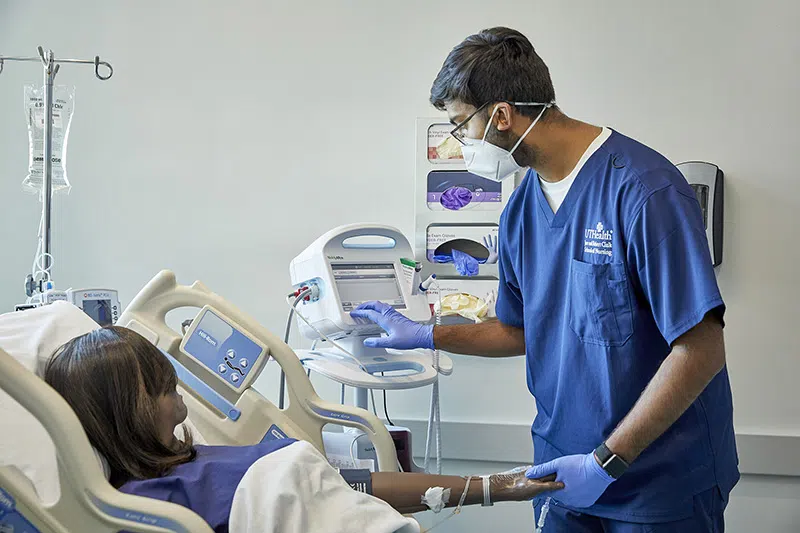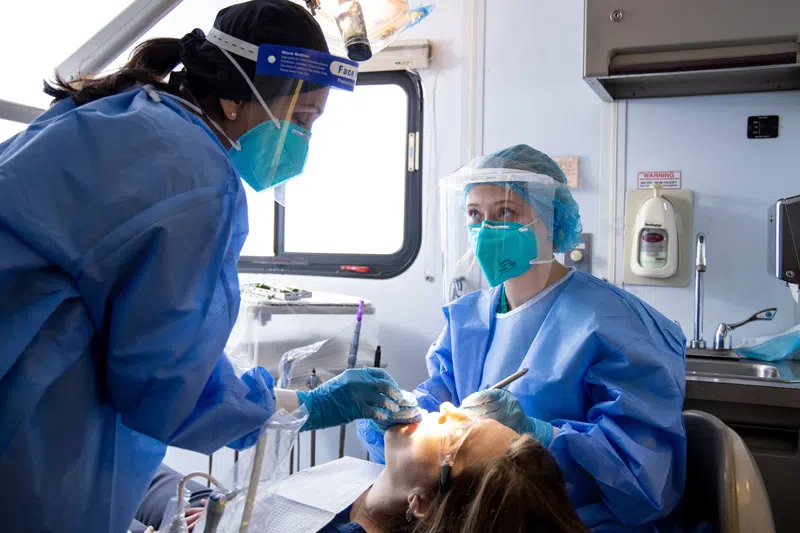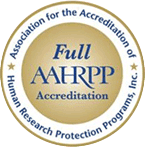It is very important that all terms used in the consent documents use very simple language that is not too technical and reads at a 6th grade reading level. The use of medicalese and legalese is strongly discouraged. Below you will find a list of technical terms and samples of simplified substitutes to be used.
acceptable: good; decent; capable
acute: a quick and severe form of illness in its early stage
adequate: good
administer: give (to)
administration (of): giving (of)
adverse event/reaction: side effect
AIDS: (Acquired Immunodeficiency Syndrome) a disease that affects the body’s immune system; development of the disease or conditions associated with the disease results from HIV (Human Immunodeficiency Virus)
appropriate: (the) right; correct
approximately: about
assess: rate the level (of health/wellness), judge (the health/wellness of)
assigned: placed in (into a group)
associated (with): having to do (with)
asymptomatic: having no symptoms or problems
at risk: having a possibility that something negative may happen
audiotape: a cassette tape that is listened to
baseline: a patient’s medical status before any treatment or research is done
benefit: a good effect
chronic: long lasting or long-term
clinical trial: medical research study of a new drug, new use of a drug, new device, or new use of a device in human volunteers
compensation: payment or gift to a research subject/volunteer
conclude(d): end(ed)
confidentiality: keeping all information about a research subject/volunteer private
consequence: result; effect; outcome
consists of: includes
CPHS: (Committee for the Protection of Human Subjects) a committee which reviews medical research studies involving human subjects for safety and ethics
determine: find out (if)
double blind(ed): a medical research study in which the subjects and the researchers are not told which of two or more treatments the subjects are receiving
effective: works; works well; works better (than)
effectiveness: working ability
efficacy: the usefulness, working ability of a type of treatment
elevate: raise
evaluate: rate the level (of health/wellness), judge (the health/wellness of)
fever: an increase in body temperature
first degree relative: a patient’s spouse, mother, father, sister, brother, or child
follow-up: returning to see the doctor at a later time
genetic: passed down from birth parents in the genes
guarantee: promise hereditary a trait, condition, or disease passed down to from birth parents
HIV (Human Immunodeficiency Virus): a life-threatening infection which you can get from an infected person’s blood or from having sex with an infected person
inclusion criteria: the characteristics a subject must have to be included in a medical research study
infusion: a fluid or a medicine delivered into a vein by way of a needle
inheritance: something passed down from birth parents
inherited: a characteristic or condition that is passed down from birth parents
initial: first
interfere: get in the way of
intervention: a treatment given during the course of a research study
intramuscular: a fluid or a medicine delivered into a muscle by way of a needle
intravenous: to put medicine or fluid into a vein by way of a needle
intubate: to insert a tube into the mouth or nose to assist in breathing
long-term extension: continuation of a research study
medical record: a chart containing all of the patient’s personal information, doctor’s notes, nurse’s notes, test results, and
treatment information that may be kept by a hospital or clinic
mild: not serious
moderate: medium level of seriousness
monitor: watch
multicenter: when more than one hospital or medical school team work on a medical research study
multiple dose: getting more than one dose of medicine
nausea: feeling sick to your stomach
obesity: very overweight
obligated: have to; must
observe: watch; look at
obstruction: block, blockage
obtain: get; determine
occur(s): take(s) place
open label: a medical research study in which subjects and researchers are told which treatments the subjects are receiving, “unblinded”
oral: having to do with the mouth; to be swallowed
orally: taken by mouth; to be swallowed
parallel-design: a medical research study comparing the response in two or more groups of subjects receiving different interventions (treatments)
participant: person taking part
participate: take part
participation: taking part
phase I: a medical research study using healthy volunteers; initial safety testing of a new drug
phase II: a later clinical study looking at a new drug’s dosage, safety, and efficacy in patients
phase III: a still later controlled, randomized study testing a specific dose of a new drug and its effectiveness in treating a condition or disease
phase IV: after a drug has been approved by the FDA and is available for use; a study that looks at how well the drug is being used in the medical community
placebo: an inactive substance; a “sugar pill”
potentially: could be; possibly
previous: other; done before
principal investigator (PI): the main individual who is responsible and accountable for conducting a medical research study
prior: before
randomized: like the flip of a coin; 50/50 chance of receiving a study medicine or treatment
rationale: reason(ing)
regarding: about
remission: when a medical problem gets better or goes away at least for a while
research study: a process of collecting information about a specific question in order to find an answer
research subject(s): a volunteer(s) who is taking part in a medical research study
risk: a possibility of injury or harm
risk factor: a characteristic or actions of an individual which identify them as having a high likelihood of developing a specific disease or condition
satisfactorily: (good) enough
screening: the process of deciding if someone is qualified to tale part in a medical research study or not
severe: very serious, life threatening
side effects: unwanted or unintended problems with a drug or treatment
single blind(ed): a medical research study in which the subjects are not told which of two or more treatments the subjects are receiving, but the researchers are
single dose: getting one dose of medicine
site (of investigation): the place where the medical research study will be carried out
sponsor: the company, department, or person who is paying for the medical research study
study phase: how far along the medical research study is
subcutaneous: injected under the skin by way of a needle
symptoms: medical problems which are noticed by a patient
temperature: how warm or cold a patient’s body is
therapy: medicine or medical care given to a patient for a disease or condition
thorough: complete, good
tolerability: how well a patient can stand a particular medicine or treatment; ability to be used
treatment: medicine or medical care given to a patient
UCRC: University Clinical Research Center
utilize: use
videotape: a tape played on a VCR to watch and listen to
washout period: the time during which a patient’s body gets rid of a medicine once they stop taking it
Readability Statistics:
For those of you who are using Microsoft Word, here are the instructions for turning on the "Readability Statistics" program.
How to display readability statistics:
1) On the Tools menu, click Options, and then click the Spelling & Grammar tab.
2) Select the Check grammar with spelling check box.
3) Select the Show readability statistics check box, and then click OK.
4) When ready, spell check the document.
5) When Word finishes checking spelling and grammar, it displays information about the reading level of the document.
Note on the "Readability Scores":
Flesch Reading Ease score: Rates text on a 100-point scale; the higher the score, the easier it is to understand the document.
** Flesch-Kincaid Grade Level score: Rates text on a U.S. grade-school level. For example, a score of 8.0 means that an eighth grader can understand the document.
Do you have a suggestion for a term or acronym that should be added to the Research Language Glossary? Please submit your suggestion to [email protected]
CPHS HELPLINE 713-500-7943
iRIS HELPLINE 713-500-7960
UTHealth’s Compliance Hotline (1-888-472-9868)
IRB OFFICE HOURS Thursdays from 1 to 4pm, via the Teams Room at this link
How can we improve this site?


 Featured Donor
Featured Donor











